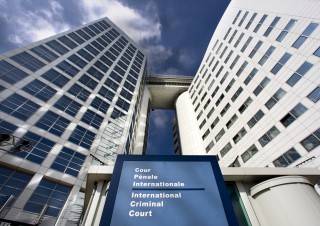There have been a lot of controversies surrounding the International Criminal Court (ICC) and its relationship with many African leaders, some of whom have their countries as members of the Hague court and are now taking steps to withdraw their country’s membership. What would this mean for the ICC and can the court really ‘survive’ without Africa?
A letter obtained by Reuters revealed that on Thursday, South Africa finally decided to pull out of the ICC. This decision comes a year after the ICC criticised South Africa for failing to arrest and hand over the ICC-wanted Sudanese President Omar al-Bashir when he was in the country for an African Union summit.
“The Republic of South Africa has found that its obligations with respect to the peaceful resolution of conflicts at times are incompatible with the interpretation given by the International Criminal Court,” according to the document to effect the country’s exit from the court.
Earlier this week, the Burundian President Pierre Nkurunziza signed into law a bill by the country’s lower house of parliament seeking Burundi’s exit from the ICC. Barring a last minute change of decision, in about a year from now, South Africa and Burundi will no longer be within ICC’s jurisdiction. Going by the provisions of Article 127 of Rome Statute of the International Criminal Court, “A State Party may, by written notification addressed to the Secretary-General of the United Nations, withdraw from this Statute. The withdrawal shall take effect one year after the date of receipt of the notification, unless the notification specifies a later date.”
Many African countries have been waiting for the bold and big regional nations to take the lead in quitting the ICC. Last year, the topic of withdrawal from the court was a key discussion at an African Union (AU) summit. A proposal for the Union to exit the ICC was brought up the Kenyan leader and it was reportedly backed by most countries.
At the end of that summit, the then AU chairman, Idriss Déby of Chad criticised the operations of the ICC. He said, “Elsewhere in the world, many things happen, many flagrant violations of human rights, but nobody cares.”
It would therefore hardly come as a surprise to witness a mass exodus of African countries from the ICC in coming months. Countries like Chad and Kenya may be the next set of African countries to tow the exit lane. Both have expressed serious concerns about the court lately.
Without African countries on board, what would ICC look like?
Currently, Africa is the continent that has most of its countries with the ICC. Out of 124 countries in the globe that are state parties to the Rome statutes of the ICC, 34 of them are African countries. Other continental regions have a lower number of countries that have signed, ratified, accepted or approved the ICC involvement. In fact, most leading countries in other continents have failed to be part of the ICC. Countries like the United States, Russia, China, India, Israel, Saudi Arabia, Indonesia and others have either refused to sign or ratify the ICC treaty.
Most of the cases that have been taken up by the ICC are from Africa. Out of the ten (10) cases currently under investigation by the court, all but one of them is from Africa. The exit of African countries from the ICC could mean redundancy for the court and this would question its relevance. The absence of African countries would mean the Hague court no longer has global jurisdiction and it may need to adjust its focus to another continent, maybe Latin America or the Caribbean.
Attempts by the ICC to move towards countries in these other regions could meet with the same resistance being put up by African countries within a short period. In as much as the ICC doesn’t deem it proper to review the serious, though questionable concerns raised by African leaders, it may die a ‘natural death’ with time – a situation where the court won’t be able to exercise its authorities over most countries in many continents.
World superpowers like the United States of America, China and Russia have not accepted the ICC for the fears of the excessive powers the court wields and this may give way for the cession of judicial authority with their country’s apex courts. The non-participation of these major countries may have also discouraged their allies from depositing their instrument of ratification for the ICC treaty with the United Nations. Only one Arab state has ratified so far – Jordan.
As it stands, the end of the International Criminal Court may be around the corner. Apparently, the exercise of its jurisdiction has failed to go beyond Africa and an imminent mass exodus of African countries from the ICC would leave the court much less relevant, even in the global scene afterwards.








